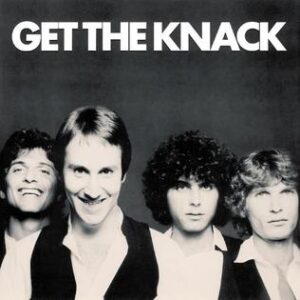 What is youth but the delirium of dreams, the reckless fumble toward ecstasy before the world crushes you into submission? Get the Knack is precisely such a delirium—brash and unrepentant in its yearning for something beyond itself.
What is youth but the delirium of dreams, the reckless fumble toward ecstasy before the world crushes you into submission? Get the Knack is precisely such a delirium—brash and unrepentant in its yearning for something beyond itself.
The opening moments of Let Me Out announce themselves with a frantic urgency, a will to break free from the suffocation of ordinary life. The guitars drive forward like the pulse of a young man gripped by hunger, not only for pleasure, but for conquest.
What is My Sharona? What is this song if not obsession itself? Doug Fieger’s voice is that of a lover and a tyrant, pleading yet demanding, a desperate suitor on the edge of sanity. Sharona, the eternal woman, the phantom that lures and destroys, the archetype of all desire that can never be fully satisfied.
But passion never exists without the shadow of its own decline. Good Girls Don’t flirts with provocation, but in its smirking bravado lies a deeper truth, the clash between ideals and desire, restraint and indulgence. Purity, if it ever existed, is long gone. Even love, even music, carries within it the seeds of its own unraveling.
She’s So Selfish? What venom, what accusation! And yet, is it not a mirror of ourselves? Do we not all grasp for what we desire, leaving the rest to wither? Is there no fairness in human affairs—only power, only will, only the hungering void that each soul seeks to fill before it is cast aside.
But let us not be fooled into thinking Get the Knack is a mindless revelry. Beneath its exuberant energy lurks a darker undercurrent. The late 1970s, a world staggering under the weight of lost idealism. The children of the counterculture, grown weary, cynical. The revolutionaries of the ’60s, now bureaucrats and broken men. Beneath the infectious hooks and musicianship lies the desperate laughter of a generation aware of its own futility.
And yet, is it not uniquely human to laugh even as the noose tightens? Get the Knack does not offer answers, nor does it seek to. It merely plunges forward, driven by its own manic energy, a bright flame against the oncoming dark.